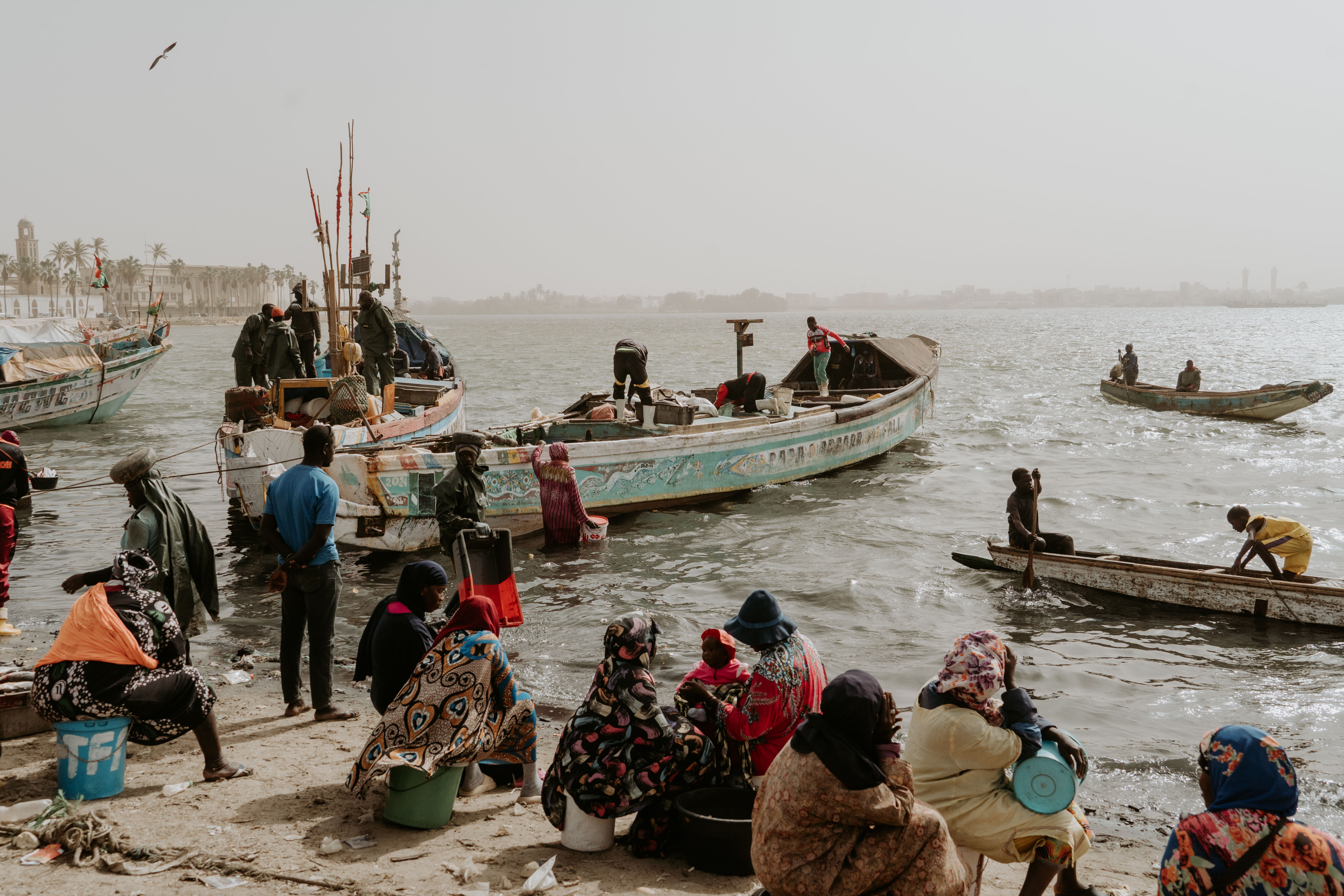Story
We are Ben and Laura from the Surfcoast, Victoria in Australia. We are cycling and surfing the west coast of Africa and completed Part 1 of our journey (8,000km from France to Senegal) in 2025, and will embark on Part 2 (Senegal to Benin, and perhaps even South Africa) from January 2026. Whilst on our journey we are proud to support the Environmental Justice Foundation (EJF) and their incredible work to combat Illegal, Unreported and Unregulated (IUU) fishing along the West Coast of Africa. We are determined to raise $20,000 AUD, so every dollar helps. The money we raise will directly help EJF's surveillance programme in West Africa, which enables coastal communities and artisanal fishers to use a simple GPS app and drones to document and report trawlers operating illegally in areas reserved for artisanal use. We witnessed the impacts of IUU fishing first-hand during our time in Africa and learnt how it is devastating Senegal’s coastal communities and destroying marine life. Industrial trawlers from Europe and Asia drag heavy nets along Senegal's seabed, wiping out ecosystems to catch just a few species and dump almost 40% of bycatch dead into the sea. With fish stocks collapsing, local fishers can no longer feed their families or earn a living. Many risk dangerous journeys to Europe in search of work, often dying at sea. Over 3,000 people died in 2023, and 9,000 in 2024. Those who make it alive end up being criminalised by the nations that robbed them of their livelihood in the first place: as so-called illegal immigrants!
During our journey, we heard heartbreaking stories from Senegalese locals struggling due to the impacts of illegal fishing. Part-way down the Saharan coastal road, we met two Senegalese men walking slowly along the side of the road carrying only a flimsy plastic bag with some of their life possessions and a plastic bottle, just a quarter full of water. They seemed desperate and told us they were making their way to Europe. In a fishing community called Guet Ndar in St Louis, we met a man named Cheikh, a retired fisherman who told us that his village had resorted to raising sheep on the sandy streets of their homes to supplement their dwindling fishing trade income. We stood beside him looking out to sea as he shared that many young Senegalese in his community had lost their lives at sea, in search of better prospects in Europe.
Fishing is a crucial part of Senegal's economy, providing employment for a large portion of the population and food security for the nation. However this artisanal type of fishing no longer sustains them - a consequence of industrial fishing and overfishing by foreign trawlers in the area.
More than 90% of Senegal’s industrial fishing fleet is comprised of bottom trawlers and most originate from Europe and Asia. They drag massive weighted nets across the seafloor, catching everything in their path and destroying the marine ecosystems at the same time. Seeking only a handful of fish species, they discard over 38% of the catch as bycatch, often dead into the ocean. Most of this catch is destined for the mass retail market in Europe and Asia (and as a result, likely ends up on Australia’s supermarket shelves). Now more than 50% of Senegal's fish population is in a state of collapse and it has become an environmental disaster with devastating humanitarian consequences.
In the face of this crisis, many Senegalese are desperate to find work and risk their lives on deadly migration routes to Europe. Many choose the 2,000 km route that takes them to the Canary Islands, the Spanish archipelago off the coast of Morocco. The crossing attempts take twelve to fifteen days in open seas in their wooden fishing boats, with many running out of water, food and sometimes fuel. In 2023, over 3,000 Senegalese lost their lives while attempting their journey and in 2024, over 9,000 died in their search of a better life. Those who make it end up being criminalised by the nations that robbed them of their livelihood in the first place: as so-called illegal immigrants.
The money we raise will directly help EJF's award-winning surveillance program in West Africa, which enables coastal communities and artisanal fishers to use simple GPS cameras to document and report trawlers operating illegally in areas reserved for artisanal use.
By donating to EJF, you will be making a real and positive difference to protecting our oceans and the people who are dependent on them - and donating through JustGiving is simple, fast and totally secure.
Please note that the funds raised here are strictly for the use by the Environmental Justice Foundation and will not be used in any means for our personal travels - we are completely self-funded on our journey.
www.ejfoundation.org
Also find our latest film about our bicycle journey from France to Senegal here: https://theduckwhisperer.com/2025/11/04/surfpacking-from-france-to-senegal/

